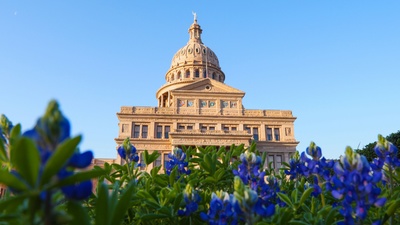
Employment & Labor
How States Are Combating AI Job Threats with Apprenticeships and Career Technical Education
September 16, 2025 | Lauren Johnson
Once the law is fully implemented, leave will accrue at a rate of one hour per every 40 hours worked, though employers may choose to provide all leave at the beginning of the year. Employers are also able to implement a 90-day waiting period for new employees to use sick or safe leave, but they will still accrue leave beginning with their first shift.
Rhode Island is the first state to enact a mandate in 2017 after Governors Larry Hogan (R) and Brian Sandoval (R) vetoed legislation in Maryland (MD HB 1)and Nevada (NV SB 196), respectively. Legislators in Nevada failed to override Sandoval's veto, but legislators in Maryland passed their bill with a veto-proof margin. Although Hogan supports paid sick leave, he called the bill “jobs-killing,” convened a study committee, and encouraged legislators to revisit the issue in 2018 by introducing a compromise measure as an emergency bill to avoid delaying the effective date. Despite Hogan's plea, the legislature remains likely to override his veto when it returns in January.
Additionally, paid sick leave legislation in Hawaii (HI HB 4)and Illinois (IL HB 2771) passed both houses of their legislatures. In Hawaii, the bill, which mandates five paid sick days for employees who work more than 680 hours per year, was left in conference committee at the end of the legislative session. Legislators will return in 2018 to iron out their differences. With large Democratic majorities in both the House and Senate, lawmakers appear likely to enact the bill in the new year. Legislators in Illinois are also resolving differences in their legislation, which requires employers to provide five paid sick days per year to employees who have been employed for at least six months.
Last year, three states — Arizona, Vermont, and Washington — enacted paid sick leave mandates. In Arizona and Washington, voters passed mandates via ballot initiatives that also increased the minimum wage in both states. Next year, paid sick leave legislation will likely appear on the ballot again, and combined with almost guaranteed legislative activity in Hawaii and Maryland, 2018 will likely see a further expansion of this mandate.


September 16, 2025 | Lauren Johnson

July 16, 2025 | Sandy Dornsife

February 26, 2024 | Townsend Brown